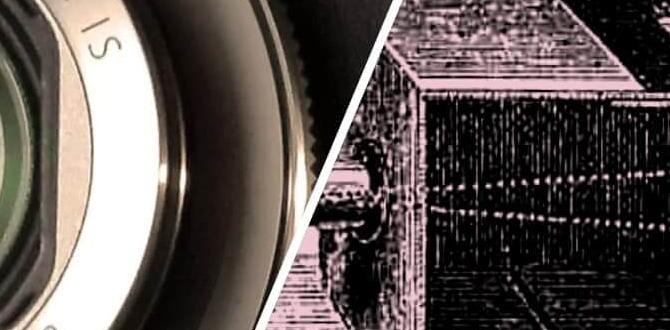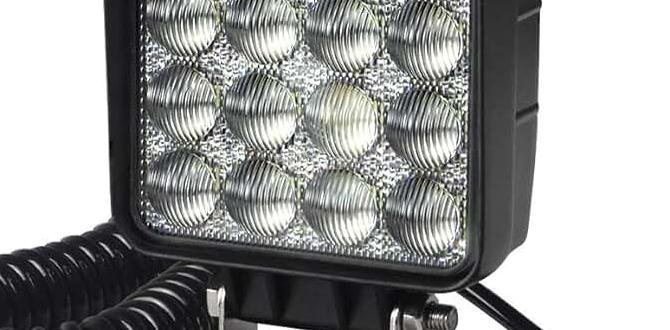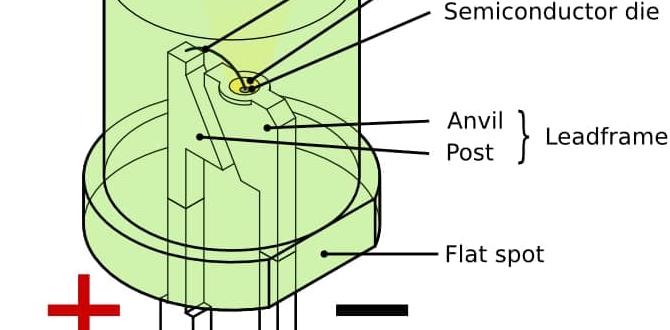Have you ever noticed a puddle on your floor and wondered, “Why is my dog leaking urine?” You are not alone. Many dog owners face this puzzling issue. Imagine how alarming it feels to see your furry friend having accidents indoors. It can happen suddenly, and you might feel worried about what it means.
Sometimes, it can signal a health problem. Other times, it might just be an accident. Understanding the reasons behind this behavior is crucial. Did you know that certain dogs are prone to urinary incontinence? It’s true! Factors like age, size, and even breed can play a part.
This article will explore why your dog may be leaking urine. You will learn about common causes and what you can do to help your pet. Let’s dive into this important topic together!
Why Is My Dog Leaking Urine? Causes And Solutions Explained

Why Is My Dog Leaking Urine?
Urine leakage in dogs can be surprising and worrying. It often signals underlying health issues. Common reasons include urinary tract infections, age-related incontinence, or even hormonal changes. Have you noticed your dog’s accidents becoming frequent? It might be time to visit a vet. Early detection can help manage the problem better. Did you know that many older dogs may struggle with this issue? Understanding the cause is key to finding a solution.Common Causes of Urine Leakage in Dogs
Agerelated incontinence. Urinary tract infections (UTIs).Several common reasons can cause your dog to leak urine. Age-related incontinence often affects older dogs, making it hard for them to control their bladder. Urinary tract infections (UTIs) are another cause, which can make your dog need to pee often. Here are some signs to watch for:
- Frequent accidents in the house
- Straining to urinate
- Excessive licking of the genital area
What causes incontinence in older dogs?
Aging can weaken a dog’s bladder muscles. This makes it tough for them to hold it in. Hormonal changes also play a key role.
What are symptoms of a urinary tract infection (UTI)?
Symptoms of a UTI include frequent urination and blood in urine. If your dog shows these signs, consult your vet right away.
Medical Conditions Leading to Urine Leakage
Diabetes and its symptoms. Hormonal imbalances, including Cushing’s disease.Urine leakage in dogs can sometimes signal health issues. One cause is diabetes. Dogs with diabetes may drink a lot of water and need frequent bathroom breaks. This can lead to pee accidents when they can’t hold it. Another possible culprit is a hormonal imbalance, like Cushing’s disease. This causes their bodies to produce too much cortisol, affecting how they control their bladder.
| Condition | Symptoms |
|---|---|
| Diabetes | Increased thirst, frequent urination, weight loss |
| Cushing’s Disease | Increased thirst, increased appetite, hair loss |
Remember, if your furry friend has leaks, it’s best to consult a vet. They can help determine if it’s a case of too many treats or a medical issue. No one wants to play peek-a-boo with puddles!
Behavioral Factors Contributing to Urine Leakage
Anxiety and stressrelated urination. Marking territory vs. incontinence.Dogs can sometimes leak urine due to anxiety. Stress might come from loud noises or changes at home. Imagine your dog doing the potty dance during a thunderstorm! Next, some dogs mark their territory, which is different from incontinence. Marking is like leaving little messages, while incontinence is a bit like your dog forgetting their bathroom training. Don’t worry, though! Understanding these behaviors can help you support your furry friend and keep your floors dry.
| Behavior | Description |
|---|---|
| Anxiety | Leaking due to fear or stress. |
| Marking Territory | Deliberately urinating to claim space. |
| Incontinence | Unintended urine leakage. |
Symptoms to Look For
Frequency and volume of leakage. Behavioral changes associated with leakage.When it comes to spotting trouble, pay attention to how often and how much your dog is leaking urine. If it seems like a mini waterfall every time they move, that’s a red flag! You might notice behavioral changes, too. Maybe they’re suddenly shy or avoiding their favorite squeaky toy. Look for signs like *frequent trips outside* or *hiding away,* as these can hint at a problem. Remember, dogs can’t talk, so we have to be their voice!
| Symptom | What to Watch For |
|---|---|
| Frequency of Leakage | More often than normal? That’s suspicious! |
| Volume of Leakage | Puddles or tiny drops? Larger amounts can mean trouble. |
| Behavioral Changes | Avoiding play? Hiding? Time to investigate! |
Diagnostic Approach for Urine Leakage
Veterinary examination and history. Diagnostic tests: urinalysis and imaging.First, a vet will look at your dog and ask about its health history. This helps find clues about why your furry friend is leaking urine. Next, the vet will conduct diagnostic tests like urinalysis and imaging. A urinalysis checks your dog’s pee for issues, while imaging, like X-rays, looks inside. It’s like a detective story, but the main character is your dog! Remember, catching problems early makes a big difference!
| Diagnostic Tools | Purpose |
|---|---|
| Veterinary Examination | Identifies health history and symptoms. |
| Urinalysis | Tests urine for infections or diseases. |
| Imaging (X-rays, Ultrasound) | Shows internal structures and possible problems. |
Treatment Options for Urine Leakage
Medications and hormonal therapies. Surgical interventions and their indications.There are various ways to treat a dog leaking urine. Medications can help. Hormonal therapies often work for female dogs. These can improve bladder control and relieve those embarrassing moments. For more serious cases, surgical interventions may be needed. This could include fixing any bladder issues. Sometimes, all it takes is a tiny tweak. Every option is different, depending on what your dog needs.
| Treatment Type | Description |
|---|---|
| Medications | Helps control leaking by enhancing bladder function. |
| Hormonal Therapies | Useful for female dogs to improve bladder control. |
| Surgical Interventions | Corrects physical issues causing leakage. |
Preventive Measures for Urine Leakage
Maintaining a healthy weight. Regular veterinary checkups.To keep your dog happy and dry, maintaining a healthy weight is key. Extra pounds can stress their bladder. Regular vet checkups help catch any sneaky problems early. Think of these visits as a VIP spa day for your pup, minus the cucumber slices. Preventing urine leakage is easier with a well-balanced diet and exercise.
| Tip | Description |
|---|---|
| Healthy Weight | Keep your dog fit to reduce bladder strain. |
| Vet Checkups | Regular exams can spot issues before they become problems. |
When to Seek Professional Help
Signs of severe underlying conditions. Importance of timely veterinary consultation.Some signs show that your dog’s urine problem may be serious. Look for these symptoms:
- Frequent accidents inside your home.
- Blood in the urine.
- Excessive drinking and urinating.
- Persistent straining to urinate.
If you notice any of these signs, it is crucial to consult a vet quickly. Early help can make a big difference. Remember, timely veterinary consultation can help uncover serious health issues, leading to better treatment for your furry friend.
What should I do if my dog is leaking urine?
If your dog is leaking urine, take them to a veterinarian right away. Ignoring this issue can lead to worse problems later. Quick action helps your dog stay healthy.
Conclusion
In conclusion, if your dog is leaking urine, it may be due to health issues, age, or anxiety. Pay attention to any changes in behavior. You should talk to a vet to find the cause. They can help you understand your dog’s needs. Keep learning about your pet’s health to ensure a happy life together.FAQs
What Are The Common Causes Of Urinary Incontinence In Dogs?Urinary incontinence in dogs happens for a few reasons. Sometimes, dogs cannot control their bladder when they get older. Other times, infections can make them leak urine. Also, injuries or certain diseases can cause this problem. If your dog has accidents, it’s a good idea to visit the vet.
How Can I Tell If My Dog’S Urinary Leakage Is A Sign Of A Medical Condition?If your dog is leaking urine a lot or it seems unusual, you should pay close attention. Look for signs like drinking more water, straining to go outside, or acting uncomfortable. You can also check if your dog is having accidents at home more often. If you notice any of these things, it’s a good idea to take your dog to the vet for help. The vet can find out if there is a medical problem.
What Should I Do If My Dog Suddenly Starts Leaking Urine?If your dog starts leaking urine, stay calm. First, check for any signs of pain or discomfort. Next, take your dog to the vet as soon as possible. The vet will help to find out what’s wrong. Don’t worry; you’re doing the right thing by seeking help!
Are Certain Dog Breeds More Prone To Urinary Leakage Issues?Yes, some dog breeds are more likely to have urine leakage problems. Breeds like Dachshunds and Chihuahuas can be affected. These issues may happen because of their tiny bladders or health problems. If you notice this in your dog, it’s important to talk to a vet. They can help you find ways to fix the problem.
What Treatment Options Are Available For Dogs That Experience Urinary Leakage?If your dog has urinary leakage, there are some treatment options to help. First, a vet might suggest special medicine to control the leaks. Sometimes, your dog may need special food or diet changes. Also, you can try special pads or diapers for your dog. In some cases, surgery might be needed to fix the problem.








